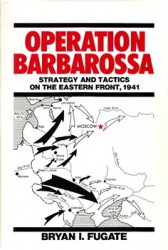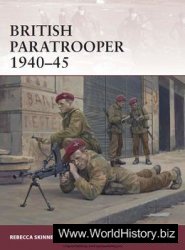Psalms were also translated for personal reasons, and often by those in prison on political or religious charges. In 1549 (for example), in addition to the metrical psalms of Crowley and Sternhold, Certain Chapters of the Proverbs of Solomon Drawn into Metre by Thomas Sternhold was published by William Seres (publisher ofTyndale and Bale). It actually had no connection to Sternhold but contained metrical translations from the Bible, including several psalms by Surrey, composed while a prisoner in the Tower of London. Surrey was dead by 1549, the last man executed in Henry Vlll’s reign (in 1547). Certain Chapters was no doubt an attempt by Seres to exploit the popularity of metrical psalms, especially Sternhold’s; not only were Surrey’s translations misattributed, but the book’s title clearly mimicked Sternhold’s. Surrey was among the great innovators in English poetry, committed to the improvement and promotion of a national literature. This was a matter of both patriotic and family pride, part of his project to rehabilitate the English nobility, with himself at its head (Sessions 1999).
Though his writing was highly ‘original’, Surrey was a translator and imitator of ancient and Continental writers. However, it is crucial to note that early modern literature was not expected to be ‘original’ in our modern sense of the word; it was expected to be good. ‘Good’ often involved openly imitating or ‘translating’ works of known excellence; imitations were not judged derivative but admired as achievements in their own right. For instance, Golding’s translation of Ovid, Norton’s of Plutarch, and George Chapman’s of Homer were among the acknowledged literary masterpieces of their day. Surrey himself translated Petrarch’s sonnets and four books of the Aeneid (see Tudeau-Clayton, Chapter 23 in this volume). He also translated
Psalms 8, 73, and 88 into poulter’s measure (alternating lines of twelve and fourteen syllables, rhymed in couplets). Though the metre has since been judged awkward and amateurish (much like Sternhold’s ‘eight and six’), for Surrey it was something new, since it seems to have been recently invented by his friend Wyatt. Surrey may also have seen it as an English approximation of classical metres, such as the elegiac, with its alternating hexameters and pentameters. Surrey’s Psalm 55, his last poem, was written in unrhymed hexameters, a similarly experimental metre and one which perhaps originated in English with this poem (Sessions 1996).
Surrey’s choice of psalms reflected his own condition: they address the kind of political intrigue and betrayal that were his downfall. Surrey’s Psalm 88, moreover, includes lines that he significantly altered from the ‘original’ verse 8 (verse 7 of the Vulgate), in which God himself, rather than unfaithful friends, is the agent of the Psalmist’s isolation:
The faithfull frendes are fledd/and banisht from my sight and suche as I have held full deare/have sett my frendshipp light.
(Arundel Harington MS 1960: i. 127)
Longe fecisti notos meos a me; posuerunt me abominationem sibi. (Thou hast made my familiars far from me: they have put me abomination to themselves.)
(Biblia sacra, Ps. 87: 7, Catholic numbering)
His final psalm (55) calls on God to ‘breake that coniured league’ and complains,
It was a frendlye foe/by shadow of good will myne olde feere and deare frend, my guyde that trapped me wheare I was wont to fetche, the cure, of all my care and in his bosome hyde, my secreat zeale to god.
(Arundel Harington MS 1960: i. 131)
Surrey does not greatly depart from his source here, but many readers have taken the ‘frendlye foe’ as a reference to Richard Southwell, Surrey’s former friend who gave evidence against him (Sessions 1999:375-7; Brigden 1994). Such personal application of Psalms was traditional. In the fourth century, for instance, Athanasius made a table of psalms to turn to in various situations of distress or elation. Applying Athanasius’ principles, in 1546 the Protestant martyr Anne Askew translated into common metre Psalm 54, which held particular resonance for her situation. The biblical headnote identifies the psalm’s context as David’s betrayal by the Ziphites, among whom he was hiding (1 Sam. 23); Askew was similarly betrayed by a neighbour (Askew 1996, p. xxxvi). But Surrey’s Tower psalms go further in subtly adapting the biblical texts. Askew translates the psalm faithfully, but reads it in her own voice; Surrey also reads his own voice into the psalm, but boldly adapts it to make the identification stronger.
Surrey’s psalm translations set a precedent for later Tower prisoners. For instance, Thomas Smith, a humanist scholar and later Secretary of State, was imprisoned after the fall of Protector Somerset in 1549; while in the Tower, he translated a number of psalms into metre, including Psalm 55. Like Surrey, he was no doubt attracted to its call for vengeance on ‘bloud thrustye and disceatfull men’ (Coverdale). Similarly, after the abortive attempt to place Lady Jane Grey on the throne, most of the Dudley family was imprisoned in the Tower, where two of them, John, Earl of Warwick, and Robert, later Earl of Leicester, produced metrical psalms.56 Robert translated Psalm 94, another psalm of vengeance, which he adapted to his own situation:
Ffor lorde yf thow forbeare/and suffer suche to raigne
How longe shall then those hawltie men/so lordlye us disdayne?
(Arundel Harington MS 1960: i. 340)
Coverdale’s version reads simply,
Lorde how longe shall the ungodly, how longe shall the ungodlye triumph?
How long shall all wicked doers speake so dysdaynfull, & make soch proude boasting?’
(1911: 94: 3-4)
Robert turns the ungodly into ‘hawltie’ and ‘lordlye’ men and even those who ‘raigne’ wickedly (like the current sovereign, Mary). John produced a version of Psalm 55, adapting it, as Surrey had, to courtly intrigues, cursing those,
Whoe with faire Clokes of truce/and fawninge lowlye bowes Have trait’rouslye conspired my death/and falst their solemne vowes All Soothinge sugred speache/eke past their flyringe lypps.
(Arundel Harington MS 1960: i. 339)
Neither Coverdale nor the Vulgate have the courtly images of ‘faire Clokes’ or ‘fawninge lowlye bowes’.
The Dudleys’ psalms and Surrey’s survive in the same manuscript, known now as Arundel Harington, alongside more Tower poetry and Wyatt’s psalms, including his translation of Psalm 37. In its personal topicality, Wyatt’s Psalm 37 is more like Surrey’s than Wyatt’s other psalms (his Penitential Psalms, discussed below). Wyatt’s psalm begins in the mode of courtly complaint so familiar from other Tower poems:
Althoughe thow see th’owtragious clime alofte
Envye not thow his blynde prosperytie
The wealthe of wretches thoughe it seemythe softe
Move not thie harte by their felicitie
They shall be fownde lyke grasse turnd into haye
And as the hearbes that wither sodeinlye.
(Arundel Harington MS 1960: i. 206)
Wyatt, like Surrey and the Dudleys, adapted the psalm (which in Coverdale begins less specifically: ‘Fret not thy self because of the ungodly’) to his own condition, transforming it into the scriptural equivalent of his translation of Seneca: ‘Stond who so list upon the Slipper toppe | of courtes estates’ (Arundel Harington MS 1960: i. 356).
John Harington the elder, who compiled much of the Arundel Harington manuscript, was in the Tower with the Dudleys in 1554, suspected of conspiracy in the rebellion of Thomas Wyatt the younger, the poet’s son. Moreover, the elder Wyatt’s poems may themselves have been written in the Tower when he was imprisoned in 1536 or in 1541. The world of Tudor England was a small one, but for those in the Tower it was smaller still. All these psalms may have been circulating among the same small group of Protestant-leaning nobles; certainly during this period metrical psalm translation was a conventional pastime for the imprisoned and persecuted.




 World History
World History









